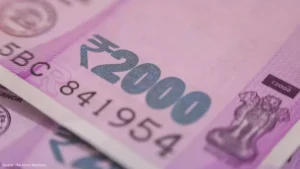Tesla India Launch: Government Pushes Tesla to Invest in Indian Market
Tesla India Launch: Pitches Country as Trusted Market for Supply Chain With Potential For High Sales Of EVs
India has extended an invitation to Tesla, pitching the country as a “trusted destination” for supply chain operations and a high-potential sales market for electric vehicles (EVs). The move comes as the Elon Musk-led company reconsiders its plans for India after abandoning them approximately a year ago. Recently, executives from Tesla’s headquarters met with government representatives who encouraged them to consider investments in India, according to Rajeev Chandrasekhar, Minister of State for IT & Electronics.
Chandrasekhar acknowledged the meetings between Tesla and the government, emphasizing India’s keen interest in attracting Tesla’s investments and commitment to supporting their plans in the country. This marks the first official comments from the Centre regarding Tesla’s potential entry into the Indian market.
India, as highlighted by Chandrasekhar, emphasized that it is an emerging large market for vehicles and an increasingly “trusted destination” for the electronics and EV supply chains. The government assured Tesla that India is now a favorable destination for all players in these sectors.
Sources indicate that the government is urging Tesla and its executives to explore India’s production-linked incentive scheme, particularly for green vehicles and battery technologies.
Around two years ago, Tesla conducted comprehensive market research on entering the Indian market. However, the company decided against pursuing it last year due to the absence of special incentives from the government. Tesla sought concessions on import duties to directly introduce its cars into the country, but the government declined, citing examples of other automakers like Mercedes-Benz, Tata Motors, and Mahindra & Mahindra, who manufacture electric vehicles locally.
Additionally, the government’s reservation towards Tesla stemmed from concerns that the company might import cars from its Chinese factory, a move viewed unfavorably amidst the prevailing Indo-China tensions.
Elon Musk has consistently expressed his desire to enter the Indian car market but has also highlighted the challenges involved in investing, including high import and other duties. In response to a Twitter user’s inquiry about Tesla’s plans for India, Musk stated, “Still working through a lot of challenges with the government” and previously criticized India’s duty structure, which he believed did not align entirely with the country’s climate goals.

Conclusion
The Indian government is actively pursuing Tesla to invest in the Indian market, highlighting the country’s status as a trusted supply chain destination and a potential high-sales market for electric vehicles. Tesla’s executives have engaged in discussions with government representatives, exploring the opportunities and considering India’s production-linked incentive scheme. While Tesla had previously shelved its plans for India due to the absence of special incentives and concerns over import duties, the government is now actively encouraging the company to reconsider its decision. With both parties engaged in negotiations, the future of Tesla’s entry into the Indian market looks promising.
Tesla executives held meetings with specific government departments, where they received encouragement to explore investment opportunities in India, as stated by Rajeev Chandrasekhar, the Minister of State for IT & Electronics. Furthermore, sources reveal that the government has urged Tesla executives to evaluate India’s production-linked incentive scheme for green vehicles.




Average Rating